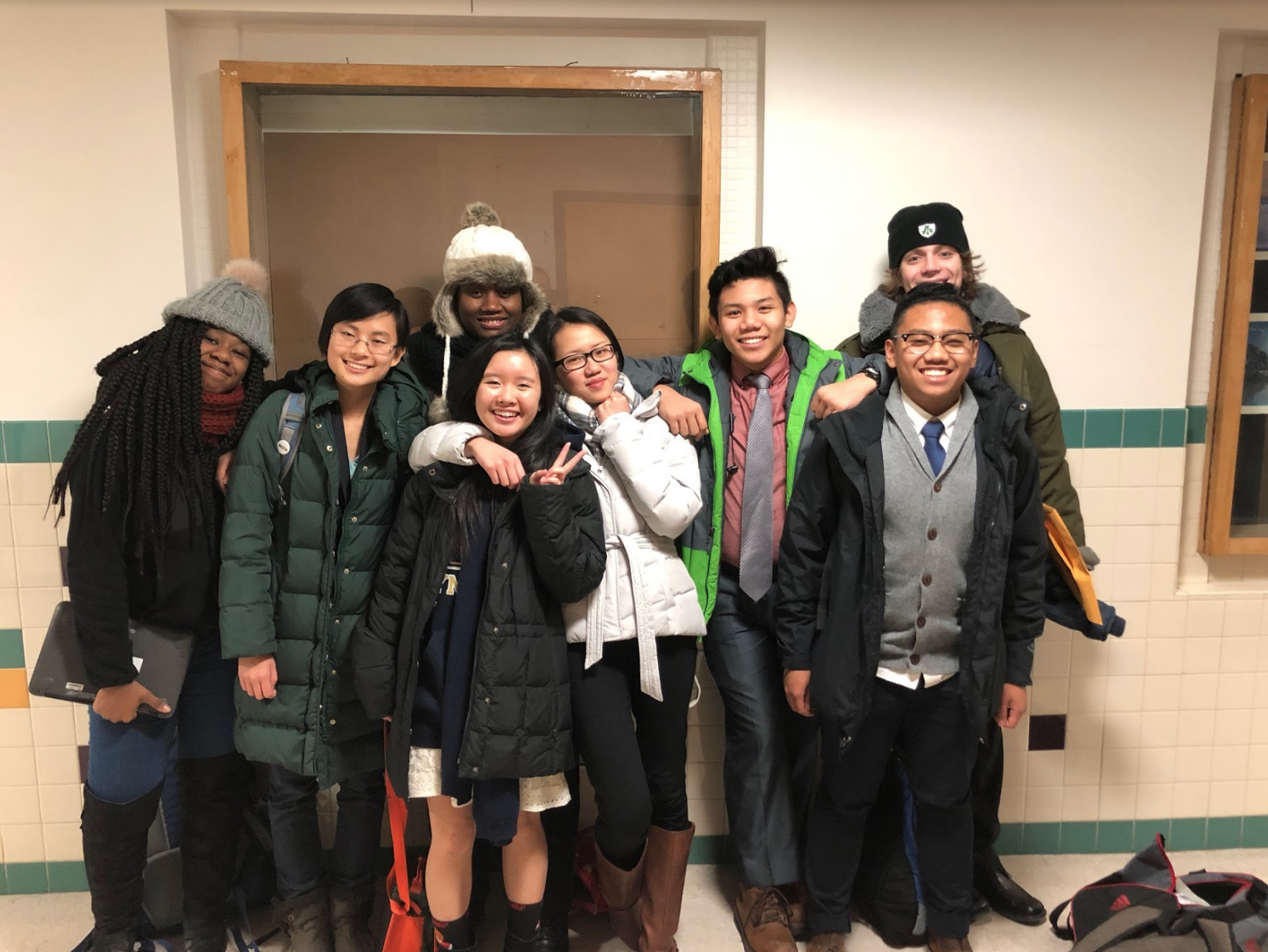
The Speech and Debate Team, post-tournament. Pictured left to right-Makesha Mercedat, Rasmee Ky, Sherley Maxmin, Suiyenah Chen, Jenny Chen, Matt Mijares, Harrison Zeiberg and Gabriel Matnog. Photo submitted by Kurtis Scheer.

The 3rd Annual Debate Night hosted by the Speech and Debate team was held on March 27th in the Jenkins Auditorium. “Debate Night was originally a student created event by two AP Gov. students several years ago” said advisor and social studies teacher Kurtis Sheer. The Speech and Debate team saw the success and wanted to keep the event a tradition.
The speech and debate team brainstormed many different ways of promoting this event. Sheer ended up visiting more than 10 social studies classes, informing the students about Debate Night. The team posted flyers around the school, along with 3 unique posters.
After several weeks, the debates were finalized by the speech and debate team based off of which topics would present the strongest arguments. Eventually, they narrowed the list of topics down to a few and voted on the official topics during one of their meetings.
The roles were mainly voluntarily chosen. “Everyone had the opportunity to choose what they did […] whether they wanted to act as a debater, moderator, researcher or other roles” said Sheer. Because there were two new events this year, many students were able to show off their skills in their strongest field whether it was debating, poetry or speech reading.
Debate Night started off with their first debate on the topic of the Death Penalty. Senior Harrison Zeiberg was going against the death penalty. Senior, Brendon Ky and sophomore, Matthew Mijares were saying the death penalty is appropriate as long as it matches the crime. Zeiberg made some strong points, one being “you can’t see people when you’re dead”, that comeback left the audience in laughter. Ky and Mijares also made some valid points, connecting back to why the death penalty has been around for so long.
Both Mijares and Ky mentioned that they were opposed to what they were debating for. Ky stated that “arguing for the opposite side, gave him a different perspective, and helped [him] understand why people would support it even if [he] personally [doesn’t]”.
After the first debate, before the second debate, speeches and poems were presented. This year was the first year they included other events like poems. Mijares stated that the poetry was his favorite part, “because the two speakers were very talented” and he knew they would both deliver empowering and enthusiastic poems.
Sophomore, Rasmee Ky said that “the most difficult part for [her] was finding all the right poems that [she] could tie together into a cohesive work that expressed the theme of safety strongly”. Junior, Birukti Tsige stated that she performed poetry arguing that freedom is more important than safety. She also mentioned that throughout her process she had to “scour the internet for any and all poems.”
Junior, Felix Li, moderator of the second debate said that “[his favorite part of the night] was the debate on cybersecurity and the internet [as the topic was of interest]”. He also felt like “we all should educate ourselves on the influence that the government has on the internet”. Li went further to explain that “it is a growing issue that affects most, if not all of us, and there must be discussion and dialogue made about it.”




